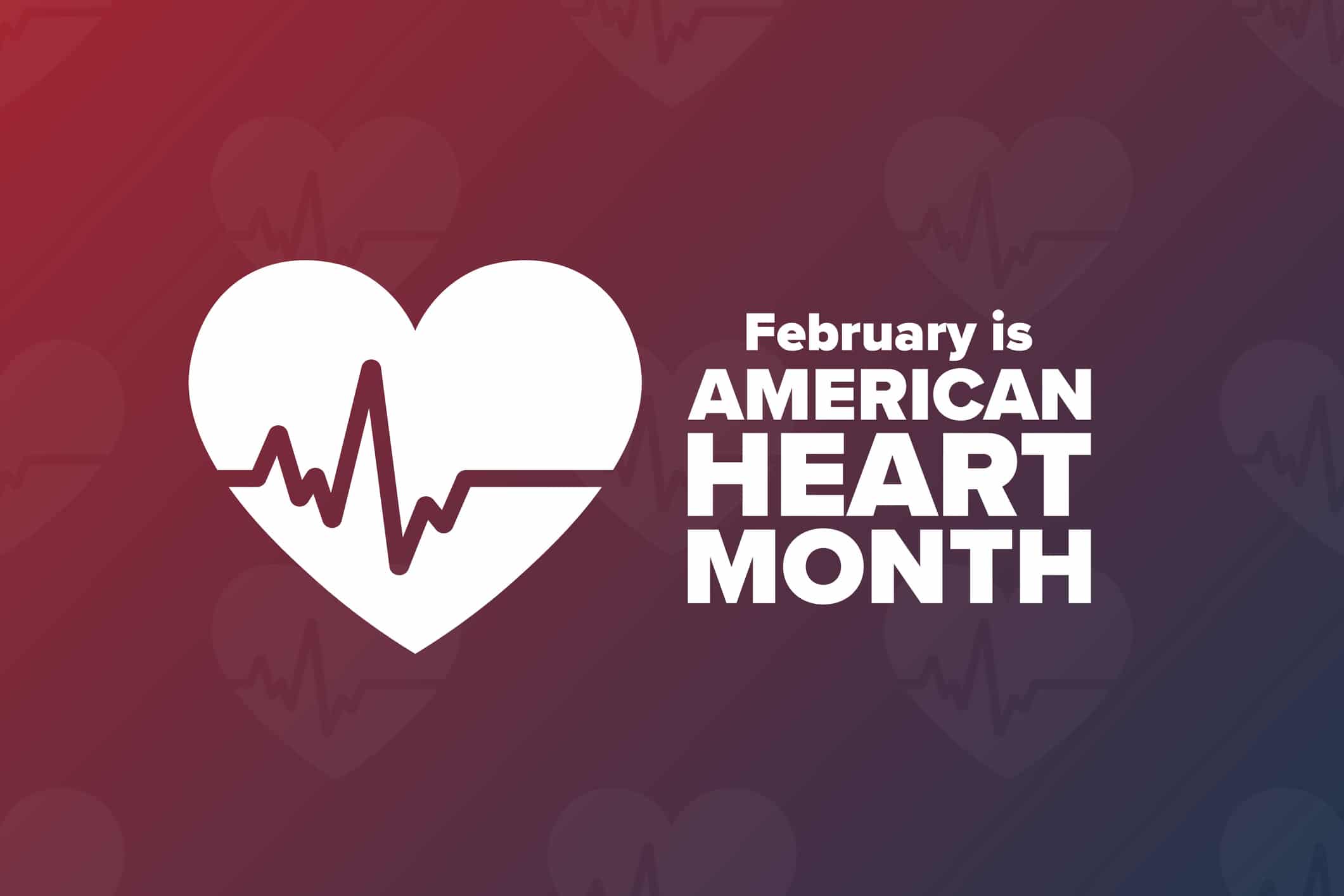
What is American Heart Month?
February 2023 is the 59th annual American Heart Month, which reminds Americans to be proactive about their heart health. Heart disease is the number one cause of death in the U.S., but 80 percent of heart disease and stroke events can be prevented with lifestyle choices.
Medically reviewed by Dr. Andy Manganaro, MD, FACS, FACC
Published on 2/5/2023
What is American Heart Month?
February is packed to the brim with hearts. Heart candy, heart-shaped cards, paper heart garlands made by elementary schoolers — even your grocery store is decked in red and pink. It’s only fitting that the second month of the year, then, is American Heart Month.
This year is the 59th annual American Heart Month, which first occurred in 1964 after it was established by President Lyndon B. Johnson, who had suffered a heart attack nine years prior. President Johnson’s proclamation was officially made in December 1963, and only a few weeks later the U.S. Surgeon General issued the first-ever government report to link smoking to negative health impacts, including heart disease and lung cancer.
American Heart Month is a federally recognized occasion that reminds Americans to prioritize heart health and reinforces the need for continued medical research. Just as it was in 1964, heart disease remains the number one health threat to Americans. The statistics on cardiovascular health in America, compiled by the American Heart Association, are staggering:
- Cardiovascular disease (stroke and heart disease combined) kills 2,300 people per day.
- Heart disease kills more people than all forms of cancer combined.
- 83% of Americans believe heart attacks can be prevented but aren’t motivated to do anything.
- 72% of Americans don’t consider themselves at risk for heart disease.
- 58% of Americans put no effort into improving their heart health.
The tragic thing about these statistics is that while there is no guarantee for heart attack prevention, there are many things you can do to improve your heart health and greatly lower your risk. In fact, 80 percent of heart disease and stroke events are preventable through lifestyle changes. It can be difficult to prioritize heart health when the threat doesn’t feel immediate, but being proactive may just save your life.
First and foremost, engaging in a healthy lifestyle by keeping your body active however you can and eating a balanced diet is a critical part of being proactive about your heart health. You don’t need to train for a marathon or become a nutritional expert; small steps like daily walks or cutting out fried food and soda most of the time can make a big difference.
Another essential component is getting screened for cardiovascular conditions like carotid artery disease, peripheral artery disease, abdominal aortic aneurysms and atrial fibrillation. Screenings are simple and non-invasive, and they can provide incredible insights that allow you and your doctor to make informed plans for your next steps in preventing heart problems.
Knowing the risk factors is key to determining whether or not you should get screened. Most people over the age of 50 should be screened regardless of other risk factors, but in addition to age, common risk factors for heart disease include:
- Family history of heart disease
- Smoking
- Diabetes
- High blood pressure
- Obesity
- High cholesterol
If you are age 50 or above, or if you exhibit one or more of the risk factors listed above, talk to your doctor about whether you should get screened. Every step you take to be proactive about your health matters.
This year, when your granddaughter gives you a Valentine’s Day card or you see the heart-shaped decorations in the grocery store window, remember American Heart Month and consider what you can do to improve and protect your heart health.
Learn more or schedule a screening today at lifelinescreening.com — or give us a call at 800.909.1041. We’d love to help.
Sources
American College of Cardiology – “The Evolution of American Heart Month”
American Heart Association – “February marks 56th consecutive American Heart Month”
Topics:
Cardiovascular Wellness